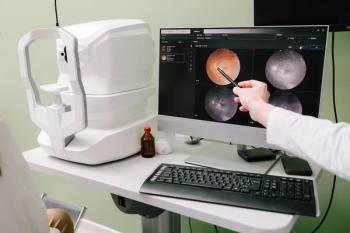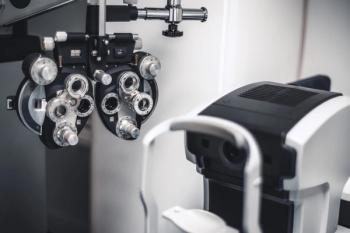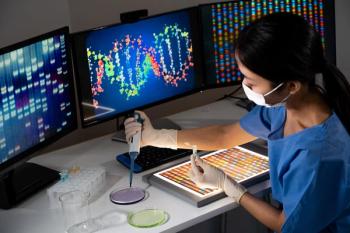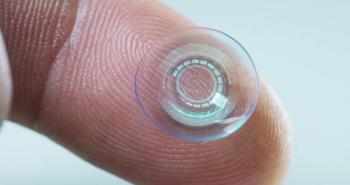
Lutein and zeaxanthin: Beyond retinal health
Optometrists like to think about ocular nutritional supplements in narrow terms, focusing on AREDS2 or the carotenoids’ visual benefits.
Optometrists like to think about ocular nutritional supplements in narrow terms, focusing on AREDS2 or the carotenoids’ visual benefits. For example, it is now well established by the AREDS2 study that dietary lutein and zeaxanthin reduce the risk of developing advanced catastrophic vision loss in patients with high-risk retinopathy.1
We also know that the lack of the ocular carotenoids in the diet can influence visual function through optical as well as biological mechanisms.2,3
This includes mitigating glare disability and improving glare recovery time, contrast sensitivity, chromatic contrast, and visual range as well as improving neural processing speed and efficiency. Notably, macular re-pigmentation with lutein in Chinese drivers, or zeaxanthin in U.S. drivers as shown in our lab, has been shown in our lab to improve night driving vision.4,5
Related:
Other optical enhancements
How many of us appreciate that dietary lutein and zeaxanthin also support the health of the human lens beyond optical enhancement through biological mechanisms? In AREDS2, dietary lutein and zeaxanthin were found to have anti-cataract properties.
In subjects in the lowest quintile of dietary lutein and zeaxanthin intake, there was a 32 percent reduction in progression to cataract surgery, a 30 percent reduction in development of any cataract, and a 36 percent reduction in development of any severe cataract.6
Related:
Separately, it been determined that for every 300-mcg (about 1/3 of a milligram) increase in dietary lutein and zeaxanthin, there was a statistically significant three percent decrease in nuclear cataract risk.7 The dietary carotenoids also promote cardiovascular health and have anti-inflammatory effects.8
Further properties of dietary carotenoids leading to a potential reduction of cardiovascular risk include lowering of blood pressure, reduction of pro-inflammatory cytokines, markers of inflammation (such as C-reactive protein), and improvement of insulin sensitivity in muscle, liver, and adipose tissues.9
Most exciting of all, lutein and zeaxanthin promote better brain health. Within our own laboratory, in the Zeaxanthin and Vision Function study, zeaxanthin has been found to promote better long term delayed memory.10
All of these extra–retinal health factors should be taken into account when choosing an ocular supplement. While supplemental mesozeaxanthin (and endogenous lutein derived mesozeaxanthin) can build macular pigment and enhance retinal pigmentation and vision, mesozeaxanthin has not been found in the ocular lens, brain, and extra-ocular tissues-thus far offering no added protection to systemic and brain health.
Related:
References:
1. Age-Related Eye Disease Study 2 (AREDS2) Research Group, Secondary analyses of the effects of lutein/zeaxanthin on age-related macular degeneration progression: AREDS2 report No. 3. JAMA Ophthalmol. 2014 Feb;132(2):142-9.
2. Hammond BR, Fletcher LM, Roos F, et al. A double-blind, placebo-controlled study on the effects of lutein and zeaxanthin on photostress recovery, glare disability, and chromatic contrast. Invest Ophthalmol Vis Sci. 2014 Dec 2;55(12): 8583-9.
3. Bovier ER, Renzi LM, Hammond BR, et al. A double-blind, placebo-controlled study on the effects of lutein and zeaxanthin on neural processing speed and efficiency. PLoS One. 2014 Sep 24; 9(9).
4. Yao Y, Qiu QH, Wu XW, et al. Lutein supplementation improves visual perfromance in Chinese drivers: 1-year randomized, double-blind, placebo-controlled study. Nutrition. 2013 Jul-Aug;29(7-8):958-64.
5. Richer S, Park D-W, Epstein R, et al. Macular Re-pigmentation Enhances Driving Vision in Elderly Adult Males with Macular Degeneration. J Clin Exp Ophthalmology. ISSN: 2155-9570, 2012, 3(3)1000217.
6. Age-Related Eye Disease Study 2 (AREDS2) Research Group, Lutein/zeaxanthin for the treatment of age-related cataract: AREDS2 randomized trial report no. 4. JAMA Ophthalmol. 2013 Jul;131(7):843-50.
7. Ma L, Hao ZX, Liu RR, et al. A dose-response meta-analysis of dietary lutein and zeaxanthin intake in relation to risk of age-related cataract. Graefes Arch Clin Exp Ophthalmol. 2014, 252(1):63-70.
8. Gammone MA, Riccioni G, D'Orazio N, Carotenoids: potential allies of cardiovascular health? Food Nutr Res. 2015 Feb 6;59:26762.
9. Vishwanathan R, Schalch W, Johnson EJ. Macular pigment carotenoids in the retina and occipital cortex are related in humans. Nutr Neurosci. 2015 Mar 9.
10. Hoffman K, Richer SP, Wrobel J, et al. A prospective study of neuro-cognitive enhancement with carotenoids in elderly adult males with early age related macular degeneration. Science Domain International Ophthalmology. 2015;4(1):1-8.
Newsletter
Want more insights like this? Subscribe to Optometry Times and get clinical pearls and practice tips delivered straight to your inbox.















































